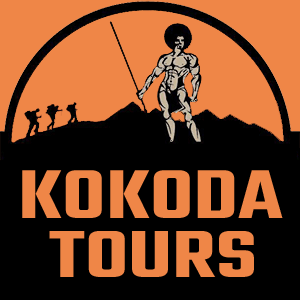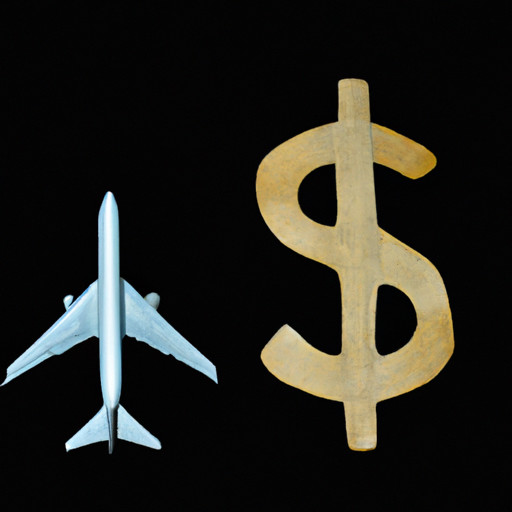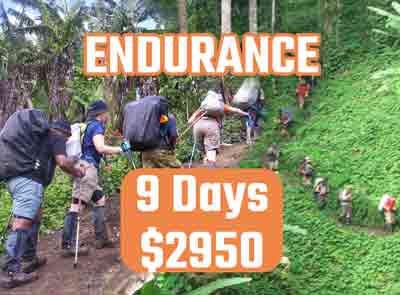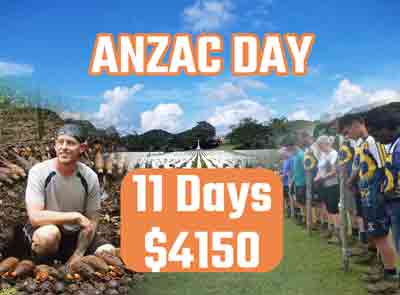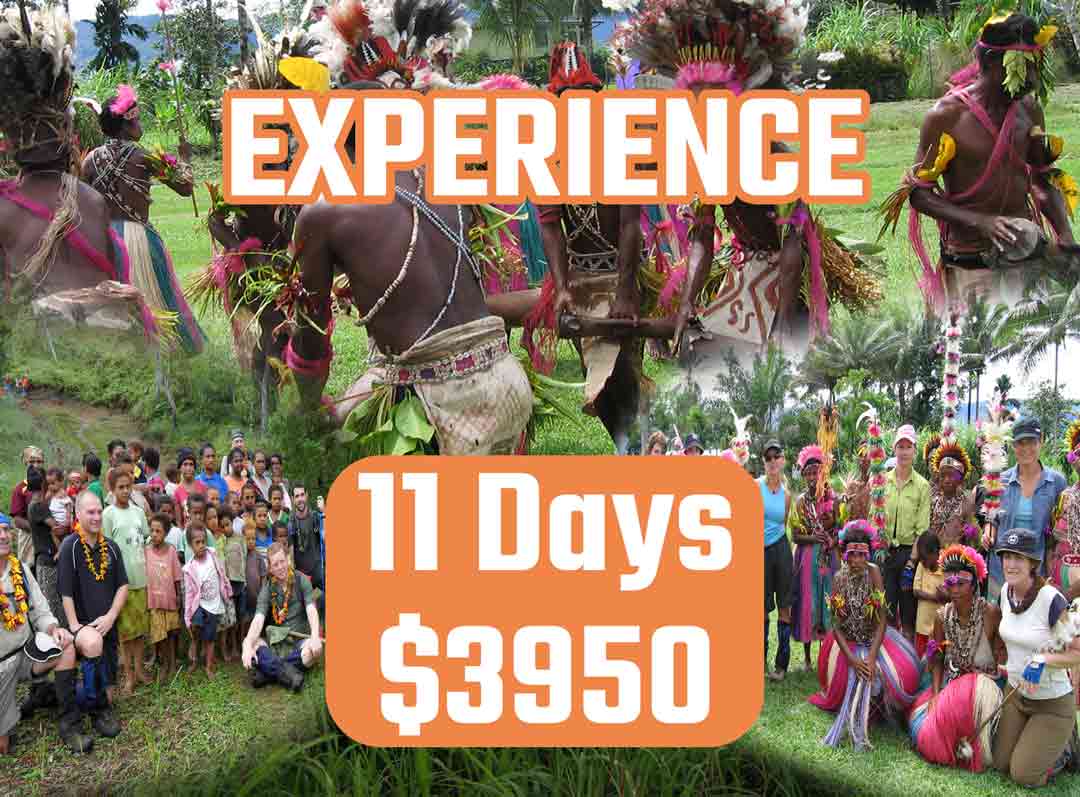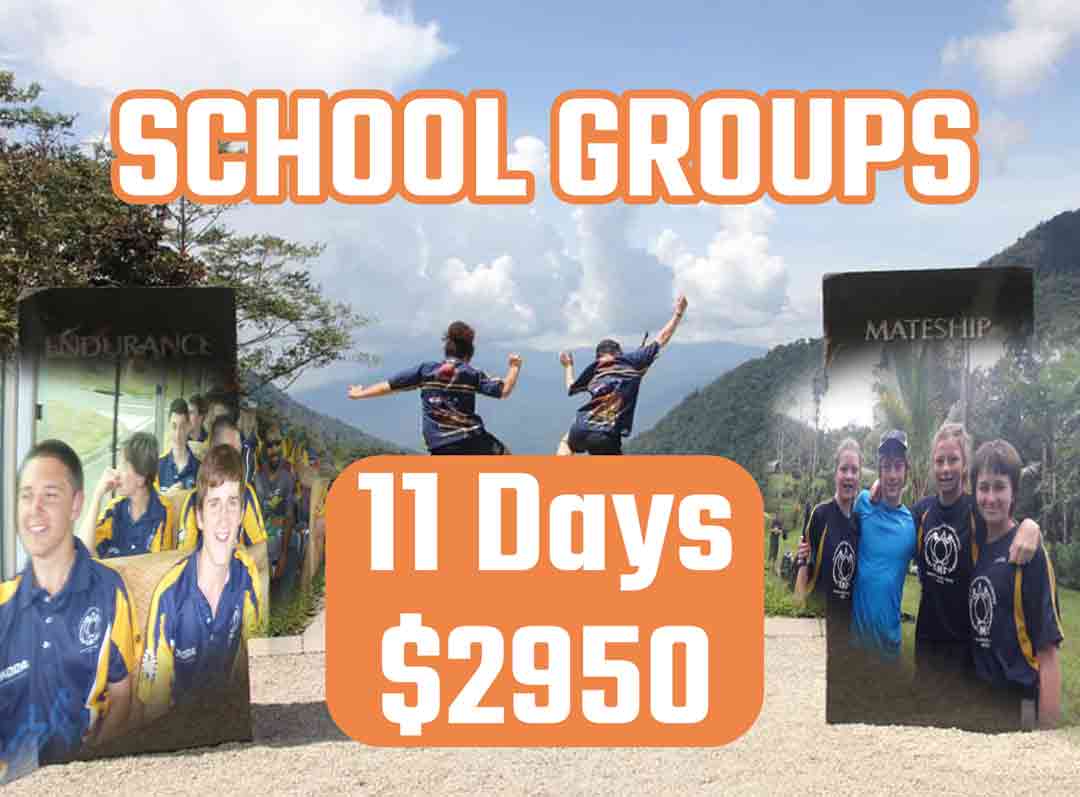How Much Does It Cost to Trek the Kokoda Track?
If you’re planning a trek along the Kokoda Track in Papua New Guinea, it’s important to budget carefully to ensure you have enough funds for the journey. In this guide, we’ll break down the costs associated with a Kokoda adventure, including flights, accommodation, and campsite/facility fees.
Airfares and Transportation Costs.
One of the biggest expenses associated with a Kokoda Track adventure is the cost include international flights, domestic flights / transportation. Depending on where you’re traveling from, flights to Papua New Guinea can be quite expensive. Once you arrive in Port Moresby, you’ll need to arrange transportation to the start of the trek, which can also add to your costs. It’s important to factor in these expenses when budgeting for your trip.
Accommodation and Food Expenses.
Accommodation and food expenses are important factors to consider when budgeting for a Kokoda Track adventure. Depending on the tour operator, it may be included in the fees or may be an additional cost. If it’s not included, expect to pay around $20 to $30 aud per night for basic stay along the trail. As for food, most tour operators provide meals as part of the fees, but it’s important to confirm this beforehand. If meals are not included, budget around $10 to $15 per day for food. Keep in mind that prices may vary depending on the location and availability of supplies across the Kokoda trail.
Kokoda Trail Trekking Gear and Equipment Costs.
In addition to flights and food expenses, gear and equipment costs are also important to consider when budgeting for a Kokoda Track adventure. Some essential items include a sturdy day pack, hiking boots, a sleeping bag, and a headlamp. Depending on the quality and brand of these items, expect to pay anywhere from $500 to $1000. It’s also important to consider the cost of hiring a porter to carry your gear, which can range from $50 to $100 per day. Overall, budgeting for gear and equipment can add up quickly, so it’s important to plan ahead and prioritize the most essential items.
Miscellaneous Expenses and Tips.
In addition to the major expenses like flights and trekking fees, there are also some miscellaneous expenses to consider when budgeting for a Kokoda Track adventure. These may include travel insurance, vaccinations, and visa fees if you are traveling from outside of Papua New Guinea. It’s also important to budget for any souvenirs or gifts you may want to purchase along the way. Finally, don’t forget to factor in tips for your guides and porters, who work hard to make your adventure a success. A good rule of thumb is to budget around 10% of your total trip cost for tips.
Some other costs for your trek may include:
| Other Costs | Detail |
| Meeting the Fuzzy Wuzzy Angels | The few that remain alive are open to photography and meet fees |
| Meals in Port Moresby | Meals outside of the trek |
| Dawn Service at Isurava | Some providers charge additions for dawn-service fees |
| Visit to Bomana Cemetery | Providers may include the visit to the cemetery (not on the track) as a different cost |
| Fresh vegetables | If you would like additional fresh veggies and fruit (outside of the meals provided) along the track, these will be for sale by the villagers |
Kokoda Track Inclusions, Permits and Fees.
Before embarking on your Kokoda journey, you’ll need to obtain a permit from the Papua New Guinea government. The permit fee varies depending on the time of year and the number of trekkers in your group, but it typically ranges from $350 to $500 per person. In addition to the permit fee, you’ll also need to pay a trekking fee of $100 per person per day. This fee covers the cost of maintaining the trail and providing support to trekkers. Keep in mind that these fees are subject to change, so be sure to check with the relevant authorities for the most up-to-date information.
Food and Water.
When trekking Kokoda, it’s important to stay hydrated and fueled with nutritious food. You’ll need to bring enough water to last you for the entire trek, as well as a water filtration system to refill your bottles along the way. You may also want to bring electrolyte tablets to add to your water for added hydration. As for food, it’s recommended to bring high-energy snacks such as nuts, dried fruit, and energy bars, as well as dehydrated meals that can be easily prepared on the trail. Keep in mind that you’ll need to pack out all of your trash, so choose foods with minimal packaging.
Hiring a Guide or Porter for your Kokoda Trek.
Hiring a guide or porter is a common practice when trekking Kokoda. A guide can provide valuable knowledge about Kokoda history and culture of the area, as well as help navigate the trail. If you engage a personal porter to carry your gear, it can allow you to focus on the history of the Kokoda trail itself. The cost of hiring a guide or porter can vary, but expect to pay around $150-$200 per day for a guide, $250-$350 per day for an Australian guide (or Australian trek leader), and $50-$75 per day for a porter. Keep in mind that these costs may not include food and stay for your guide or porter, so be sure to factor that in as well.
Choose the right Australian or Kokoda tours trekking company and package.
When it comes to planning this lifetime experience, choosing the right trek operator and trek package can make a big difference in your overall costs. Some companies offer all-inclusive packages that include everything from transportation to meals to camping equipment, while other trail operators offer more basic packages that require you to bring your own gear, cooking equipment and food. It’s important to do your research and compare prices and services to find the best fit for your budget and needs. Keep in mind that cheaper packages may not always be the best value, as they may not include important services or have experienced guides.
Be aware of additional costs and fees.
When planning your journey, it’s important to be aware of any costs for additional items and fees that may not be included in the package. For example, some trekking companies may charge extra for airport transfers, trekking permits, battle site or porter fees. It’s also important to budget for any necessary gear or equipment that you may need to purchase or rent, such as hiking boots, a backpack, or a sleeping bag. By being aware of these additional costs and fees upfront, you can avoid any surprises and ensure that you stay within your budget.
Understand the Different Booking and Trek Itinerary Options.
Before you can accurately budget for your PNG itinerary, it’s important to understand the different trekking options available. The most popular expedition is the 96-kilometer Kokoda Track, which typically takes between 8-10 days to complete. However, there are also shorter and longer expeditions available, as well as alternative times that may be less crowded. It’s important to research and compare the different options to determine which is best suited for your preferences and budget.
Look for Ways to Save Extra Money.
While a Kokoda journey can be a significant investment, there are ways to save money without sacrificing the quality of your experience. One option is to join a group trek or seek group rates at your time of booking, which can be more cost-effective than going solo. Additionally, consider traveling during the off-season or shoulder season when prices may be lower. Finally, be sure to shop around for the best deals on gear and equipment, and consider renting items instead of buying them outright. With a little planning and research, you can enjoy a memorable Kokoda journey without breaking the bank.
Consider alternative optional extras for transportation and stays.
One way to save money on your Kokoda journey is to consider alternative options for transportation and your stay. Instead of flying directly into or out of Kokoda Station, you could look into taking a cheaper flight to a nearby city such as Poppendetta and then taking a bus or taxi to the starting point of the trail. Additionally, instead of staying in expensive hotels or lodges, you could consider camping or staying in local villages along the way. This not only saves money, but also provides a more authentic cultural experience. Just be sure to research and plan ahead to ensure safety and comfort.
Understand the Total Cost of the Trek.
Before embarking on your cultural journey, it’s important to understand the total cost involved. This includes not only the cost of the journey itself, but also flights, visas, travel insurance, gear, and any additional expenses such as meals and souvenirs. Research the average cost of each component and create a budget that takes into account any potential fluctuations in price. Be sure to also factor in unexpected expenses and leave some wiggle room in your budget to avoid any financial stress during your journey across the Kokoda track.
Conclusion
Inclusions and exclusions are two important factors to consider when attempting to determine the cost of trekking the Track. Before making your booking, it is essential that you understand what is included in the package and what is not. Generally, some inclusions may be meals, guide fees, transportation costs and entrance fees. Conversely, other expenses such as airfares, travel insurance and personal equipment may be left to your discretion.
It is imperative that you do thorough research on the tour companies offering packages for hiking Kokoda before making a booking decision. This will enable you to find a company that suits your budget while still providing value for money services. Additionally, considering some of the hidden costs associated with these expeditions can contribute greatly in helping you make an informed financial choice. Ultimately the goal should be finding a reputable company with a track record of successful expeditions at reasonable rates which cater to all or most of your needs during this excursion experience.
